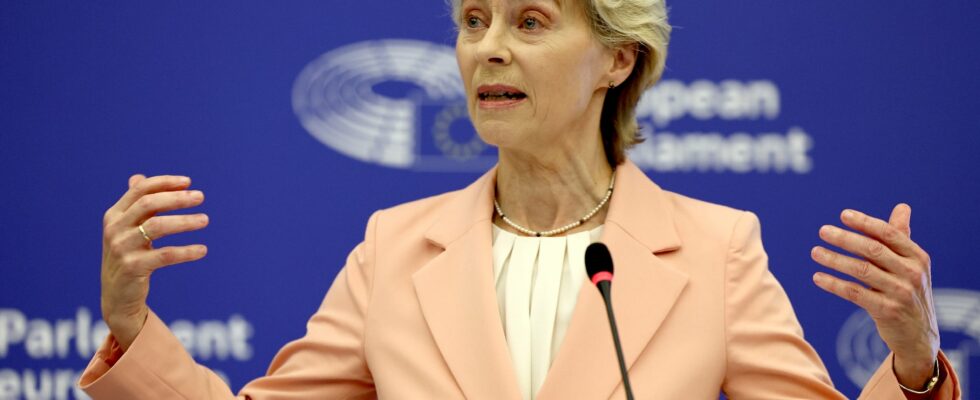“Fragmentation”: this is the latest buzzword in Europe since the publication of Mario Draghi’s report on the future of the European Union, whose uncompromising observation contrasts with the hushed style of the Brussels bubble. Fragmented, the capital market and the industrial base of defense, which is nevertheless necessary for our security. Fragmented, the industrial policy where each State wants his battery factories, his champions, his funding for his technological innovations rather than dealing with the subject on the only scale that is worthwhile to counter the Chinese and American behemoths: that of the continent. Fragmented, the decarbonization strategy and the trade policy that have given China the key to the European automobile industry. What is at stake? “The slow agony” of the European economy, to use Draghi’s words, and, with it, of our freedom to choose our destiny.
Mario the wise has spoken. And now? How will European political leaders, in Brussels and in the Member States, grasp this “harsh truth” and propose the necessary reforms? European governance requires three entities – the Member States, the European Parliament and the Commission, guarantor of the treaties, and therefore of the common European interest – to agree on the decisions to be taken. What can be expected of each? By definition, the Member States embody European fragmentation: they defend their national interests. In the past, some leaders have been able to articulate national and European priorities. Mario Draghi is one of those leaders. Except that, by postponing the publication of his report until after the European elections, Brussels and certain Member States wanted to neutralize the political weight of the former President of the European Central Bank: what could have been the roadmap of a great European leader has become the report of a venerable augur who is listened to… before going back to his little political games. As for the European Parliament, it has never been so fragmented.
A Commission version Uncle gunslingers
Then there is the Commission. There would be much to say about the casting proposed to Parliament by its president, Ursula von der Leyen, but let us stick to two certainties for the moment. The first is that the latter is strengthening her position. The multiple overlaps of competences between the portfolios – for example between Teresa Ribera, responsible for the energy transition and competition and Stéphane Séjourné, responsible for reindustrialization – are presented as a response to the ineffectiveness of silo policies denounced in the Draghi report: each will have to work with the others. In reality, they are the assurance of multiple power relations, favorable to Ursula von der Leyen. After the near dismissal of Thierry Breton, the German president invents the Commission version Uncle gunslingers with these wallets scattered like a puzzle.
Second certainty: it is confirmed that the catastrophic sequence opened by the dissolution of the National Assembly in June will have finished reducing French influence in Brussels. Allowing the appointment of two anti-nuclear socialists, the Spanish Teresa Ribera and the Danish Dan Jorgensen, Commissioner for Energy, to be imposed to oversee the two departments that have the upper hand on energy investments and their public financing rules – through the Energy Directorate and especially the all-powerful Competition Directorate – is quite an achievement at a time when nuclear power is making a strong comeback across Europe. Will we see a new stable coalition of pro-nuclear states in reaction? Not necessarily: watch out for the emergence of surprising ad hoc majorities at a time when the countries of Central Europe and the Baltic are obsessed with security issues – we would be unless… – and are therefore ready to compromise on all other subjects to promote their defense agenda. “Our Europe is mortal,” the French president likes to repeat. The French and European nuclear industry too.
Cécile Maisonneuve is the founder of Decysive and an advisor to the Ifri Energy and Climate Center
.
